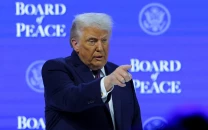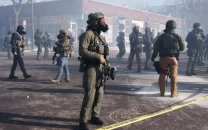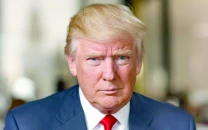The last great chance for peace?

In absolute terms, India’s GNI is almost 7.5 times as large as Pakistan’s and so a much smaller percentage of GNI would take it much further in military expenditures. Also, since India collects more in taxes as a percentage of GDP, its ability to spend is greater. Pakistan will need to run faster and faster to stay in the same place at considerable cost in human development terms where it is also lagging. Indian’s capacity to take advantage of internal disaffectation, for example in Balochistan, is increasing relative to our dwindling capacity. There is no need to further belabour this obvious point. So Pakistan needs external and internal peace and it will not be possible to get one without the other. Internally, we need to use our limited resources to attain economic take-off and provide opportunities to a young population. Thirty per cent of Pakistan’s population is currently less than 14 years old. Social justice can provide internal peace, otherwise, in less than a generation, the looming demographic change will be socially explosive rather that yielding dividends.
Externally, in negotiations with India, the Pakistani population needs to be clear on what it wants. My recommendation is that Pakistan should be no more than an advocate for what the majority of the Kashmiri people want. Dreaming about real estate is neither just nor realistic. If the majority of the Kashmiri people are willing to settle for more autonomy and constitutional protections from both sides, such a bargain can and should be speedily struck in a three way agreement.
The timing is perfect because India also needs external peace to sustain its economic take off. Now more than ever, both countries face a common enemy that takes the form of self-righteousness and intolerance, whether Muslim or Hindu fundamentalism. Peace can enable both countries to contain this threat and deal with simmering insurgencies by meeting just demands via a democratic process.
What are the main obstacles? In Pakistan, it was traditionally viewed to be the military. Allocations are premised on external threats and removing the threat would and should divert resources to economic and human development. The military brass understands that a strong economy is the best defense for Pakistan, but its institutional interests might offset this evident logic. However, the current military leadership may be the most welcoming of peace yet. For all its faults and the illegality of its existence, the Musharraf administration took bold steps for peace and there might be continuity in thinking in the military in this regard.
While militants are unlikely to welcome peace with a hated enemy or the subsequent strengthening of the Pakistani state in its ability to justly deliver services and opportunities, they can be marginalised at this historical juncture, but this may not be the case for long.
The current political administration seems open to and welcoming of peace and should make the most of the resumption of talks. It currently has leverage with the US administration that might be willing to work behind the scenes since here again there is an obvious confluence of interests. Thus, there appear to be a constellation of forces favouring peace. Pakistan should make the most of it. Time is not on Pakistan’s side so it needs to seize the opportunity.
Published in the Express Tribune, May 22nd, 2010.



















COMMENTS
Comments are moderated and generally will be posted if they are on-topic and not abusive.
For more information, please see our Comments FAQ